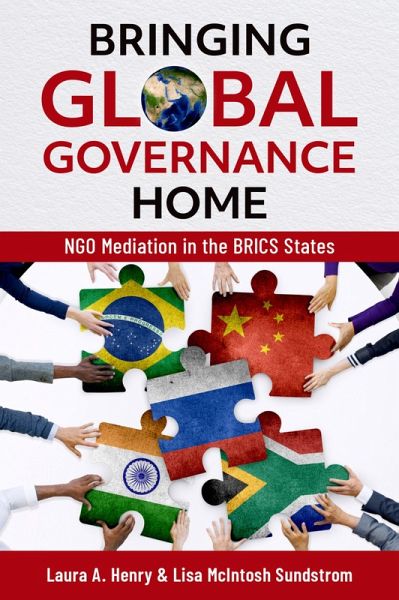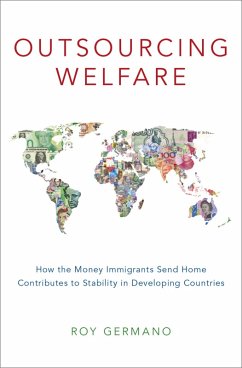
Bringing Global Governance Home (eBook, PDF)
NGO Mediation in the BRICS States
Versandkostenfrei!
Sofort per Download lieferbar
30,95 €
inkl. MwSt.
Weitere Ausgaben:

PAYBACK Punkte
15 °P sammeln!
The world's problems--climate change, epidemics, and the actions of multinational corporations--are increasingly global in scale and beyond the ability of any single state to manage. Since the end of the Cold War, states and civil society actors have worked together through global governance initiatives to address these challenges collectively. While global governance, by definition, is initiated at the international level, the effects of global governance occur at the domestic level and implementation depends upon the actions of domestic actors. NGOs act as "mediators" between global and dome...
The world's problems--climate change, epidemics, and the actions of multinational corporations--are increasingly global in scale and beyond the ability of any single state to manage. Since the end of the Cold War, states and civil society actors have worked together through global governance initiatives to address these challenges collectively. While global governance, by definition, is initiated at the international level, the effects of global governance occur at the domestic level and implementation depends upon the actions of domestic actors. NGOs act as "mediators" between global and domestic political arenas, translating and adapting global norms for audiences at home. Yet the role of domestic NGOs in global governance has been neglected relatively in previous research. Bringing Global Governance Home examines how NGO engagement at the global level shapes domestic governance around climate change, corporate social responsibility, HIV/AIDS, and sustainable forestry. It does so by comparing domestic reception of global standards and practices in the BRICS states (Brazil, Russia, India, China, and South Africa). These newly emerging global powers, representing a range of regime types, aspire to become global policy makers rather than mere policy takers and have banded together through periodic summits to devise alternative approaches to economic development and global challenges. Nevertheless, these countries still engage the world primarily through existing global governance institutions that they did not create themselves. Ultimately, this book explores the interplay of international and domestic factors that allow domestically-rooted NGOs to participate globally, and the extent to which that participation shapes their ability to mediate and promote global governance perspectives within the borders of their own countries with varying regimes and state-society relations.
Dieser Download kann aus rechtlichen Gründen nur mit Rechnungsadresse in A, B, BG, CY, CZ, D, DK, EW, E, FIN, F, GR, HR, H, IRL, I, LT, L, LR, M, NL, PL, P, R, S, SLO, SK ausgeliefert werden.













